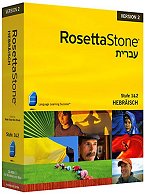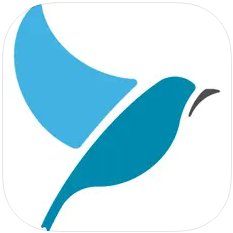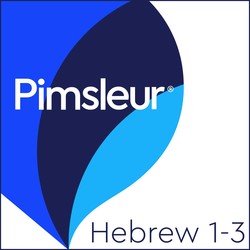Mondly Hebrew App
The Best Alternative to Duolingo
 Systems:
Systems: Android and iOS Apps, Online Version (PC and Mac)
Suitable for: Beginners, Intermediate and Advanced Learners, Students, Travel
Content: Hebrew vocabulary trainer (5000 words), playful exercises, grammar
Prices: Free (initial lessons), USD 12.99 (1 month and 1 language), USD 59.99 (12 months and access to all 41 languages)
Discount offer: USD 99 (Lifetime Access to all 41 Languages)
Overall Value: 
The Mondly App lets you learn the Hebrew language in a playful way with a series of interactive exercises.
This Hebrew learning program contains:
- Hebrew vocabulary trainer with 5000 words
- 50 topics and categories to choose from
- 2100 Hebrew lessons, including grammar
- Conversation trainer for common situations (speech recognition)
- There is even a virtual reality version of this learning app
Mondly has around 45 million users worldwide. This language course has the advantage of having 41 source languages and 41 target languages.
Summary: Mondly is very similar to the Babbel and Duolingo apps and even better in terms of quality. The cost-benefit ratio for the lifetime access to all 41 languages is unbeatable.
Link:
Mondly Hebrew App and Online Course
Hebrew Basic Course
From 17 Minute Languages
 Systems:
Systems: Online Access (PC, Mac, Linux, Android, iOS)
Suitable for: Beginners and Advanced Learners, Students, Professionals
Content: 1300 words (basic course), 5200 words (complete course), grammar, verb conjugations, exercises
Prices: USD 59.95 (Basic Course), USD 127 (Complete Course)
Overall Value: 
The Hebrew Basic Course contains a vocabulary trainer for the basic Hebrew vocabulary (1300 words) with native-speaker audio, as well as grammar explanations and various exercises.
The vocabulary trainer works with a long-term memory method, in which the new vocabulary is checked at increasing intervals.
You can choose between text input, multiple choice or simply confirming whether you knew a word or not.
The exercises include text comprehension questions, filling in word gaps or just vocabulary lists where one side is covered.
The basic course corresponds to the official language levels A1 and A2 (explanation of CEFR language levels).
The Complete Course contains:
- Basic course for beginners (basic vocabulary with 1300 words)
- Intermediate course (1800 more words)
- Advanced course for experts (2100 words)
- Additional specialized vocabulary
- Covers the official CEFR language levels A1 to C2
There are 17 different languages you can use to learn Hebrew with this app.
Summary: Much cheaper and even better than the famous Rosetta Stone. There is a free demo version available and a 30-day money-back guarantee.
Link: Hebrew Basic Course and Complete Course
Glossika Hebrew App
Hebrew for Advanced Learners
 Systems:
Systems: iPhone App, Online Version
Suitable for: Intermediate and advanced learners
Content: Hebrew advanced exercises
Prices: USD 17 (1 month and 1 language), USD 31 (1 month and all 64 languages)
Overall Value: 
The Glossika app is for people who already have some basic proficiency in Hebrew or already know a similar language.
The app has an entry test to determine your Hebrew proficiency level. You can start from A1 to B2 (beginners and intermediate).
Glossika works with whole sentences instead of single Hebrew words. You can choose which topics you want to learn.
This app has intentionally no "gamification". The only exercises are reading, listening, typing the sentences and speaking into the microphone.
There are also no grammar explanations. You are supposed to understand Hebrew grammar from the context, like in Rosetta Stone.
You can try the complete app with all 64 languages for 7 days for free (without providing payment information).
Summary: Effective exercises for advanced learners, but somewhat higher price and not much variety.
Link: Glossika Hebrew Language Course App
Rosetta Stone: Hebrew
Most Famous Language Learning App
 Systems:
Systems: PC, Mac, Android, iOS Apps
Suitable for: Beginners, intermediate, experts, professionals, business
Content: Hebrew lessons with native speaker audio and speech recognition
Prices:
USD 36 (3 months)
USD 145 (12 months)
USD 299 (Lifetime access)
USD 349 (Lifetime access for 24 languages)
Overall Value: 
How does Hebrew learning with Rosetta Stone work?
Rosetta Stone has a different approach to language learning than many other online courses or language apps such as Duolingo, Memrise and others.
The idea behind Rosetta Stone is to learn a language like you did as a child - by using pictures in combination with listening, speaking, and reading.
Each Rosetta Stone lesson includes the following exercises:
- Pronounce the words or phrases correctly (speech recognition)
-
When reading or hearing a word, click on the correct picture
-
When looking at a picture, click on the correct word
-
Type in a spoken word correctly, etc.
A possible disadvantage of Rosetta Stone is that there are no grammar explanations or translations of the Hebrew vocabulary.
Instead, you are supposed to learn the grammar and the meaning of words from the context or recognize the meaning from the pictures.
Rosetta Stone Apps and Online Version:
The Rosetta Stone Hebrew learning software can be used online with a subscription for 3 or 12 months or with a Lifetime Access.
In addition to the online version, there are now also Rosetta Stone apps for iPhones and Android smartphones.
Summary: Time-tested method, but the lack of grammar explanations and translations may make Rosetta Stone not suitable for everyone.
Link: Rosetta Stone App and Online Course
LingQ Hebrew App
Innovative Approach to Learn Hebrew
 Systems:
Systems: Android and iOS Apps, Online-Version (PC and Mac)
Suitable for: Beginners, intermediate, advanced learners, students, professionals
Content: Video and text lessons, browser extension to import any Hebrew texts, vocabulary trainer
Price: USD 15 (1 month), USD 120 (12 months)
Overall Value: 
The LingQ Hebrew App is basically a translation program that is combined with a personalized vocabulary trainer.
In addition to the lessons and texts that are included in this app, any Hebrew text can be imported. LingQ has its own browser extension for Firefox, Safari and Chrome to import texts (including ebooks).
You can click on any word in the texts to see a translation and this adds the word to your personal vocabulary trainer.
LingQ also has many videos and podcasts, the content of which appears as a text next to the video or podcast — so that any word there can be clicked on and saved as well.
Unfortunately, there are no grammar lessons, meaning that this app will not suffice on its own to learn Hebrew.
Summary: Very interesting way to learn Hebrew vocabulary on any subject. However, you need other apps for Hebrew grammar and conjugations.
Bluebird Hebrew App
Hebrew Lessons and Exercises
 Systems:
Systems: Android App, iPhone App, Online-Version (PC and Mac)
Content: Hebrew lessons and exercises with voice output and speech recognition
Prices: USD 9.99 (1 month), USD 100 (12 months), USD 200 (unlimited), USD 400 (163 languages)
Overall Value: 
The Bluebird App offers 146 source languages and 163 target languages and dialects, including Hebrew.
The Hebrew language course in this app includes the following:
-
Daily video lessons at three difficulty levels.
-
Basic Hebrew vocabulary on several dozen topics
-
Common Hebrew verbs with conjugations
-
Analysis of your pronunciation (with speech recognition)
-
Tests: listening comprehension, filling in word gaps, quizzes
For Hebrew, there are about 500 video lessons, each 5 to 60 minutes long. For languages with other scripts, the words can also be displayed transliterated in the Western script.
The Bluebird App does not have grammar lessons. Instead, you are supposed to understand the grammar "implicitly" from the examples, same as in Rosetta Stone.
Summary: The video lessons and the interface require some getting used to, but the exercises are quite varied. Especially for smaller languages, this app is an acceptable alternative.
Duolingo Hebrew App
Well-Known Language Learning App
 Systems:
Systems: Android App, iOS App, PC and Mac
Content: Exercises with native-speaker audio
Prices: Free (with ads), USD 12.99 (1 month), USD 60 (12 months)
Overall Value: 
The Duolingo App offers beginner language courses for 36 languages, including Hebrew. Duolingo covers mostly the basics as well as some intermediate level Hebrew vocabulary.
The major drawback of Duolingo (just like Rosetta Stone) is that there are no grammar explanations.
The vocabulary learning with Duolingo is "gamified", which means it is structured like a game with levels, experience points, achievements, etc.
The interface is relatively similar to the apps from Mondly and Babbel (Babbel has no Hebrew course).
Summary: The vocabulary trainer and the exercises of the program are okay. However, it is not possible to learn Hebrew grammar with this app.
Memrise Hebrew App
App with User-Generated Lessons
 Systems:
Systems: Android App, iPhone App, Online-Version (PC and Mac)
Content: Hebrew lessons and vocabulary trainer with native speaker audio, grammar
Prices: USD 22 (1 month), USD 70 (12 months), USD 255 (unlimited)
Overall Value: 
With the Memrise App you can learn over 90 languages.
This includes even very small languages - however, in such cases the language courses are often limited to just a few lessons.
One special feature of the Memrise learning app is the large number of lessons created by users (native speakers).
The quality of these lessons varies greatly though. For example, only the basic forms of verbs are usually taught, without the conjugations. Some languages also do not have an audio recording of the words at all.
Another good idea of the Memrise app are the user-generated tips and mnemonics for each word to help you memorize them.
Summary: User-generated lessons are a good idea. In practice, the quality of the lessons leaves a lot be desired.
Mango Hebrew App
Includes Grammar
 Systems:
Systems: Android and iOS Apps, Online Version
Content: Hebrew lessons with native speaker audio, grammar, culture
Prices:
USD 12 (1 month and 70 languages)
USD 120 (1 year and 70 languages)
Overall Value: 
The Mango Languages App offers 70 languages, including Hebrew.
This app also has some grammar lessons and cultural explanations. The explanations in English are all recorded and well done.
However, the number of lessons for learning Hebrew is quite small, which means that this app is only suitable for absolute beginners.
There are no exercises, except for the repeated vocabulary tests.
You can also record your own pronunciation in the app and compare it with the recording of a native speaker.
Summary: Good quality, but not much vocabulary. Only for absolute Hebrew beginners.
Lingo Hebrew App
Playful Hebrew Learning
 Systems:
Systems: Android and iPhone Apps, Online Version (PC and Mac)
Content: Hebrew lessons and exercises
Prices: USD 19.99 (1 month), USD 40 (3 months), USD 60 (6 months)
Overall Value: 
The Lingo Play App offers language courses for 70 languages. It offers "gamified learning", which means learning vocabulary in a playful way.
Each Hebrew lesson offers the following exercises:
-
Presentation of new words with translation and image
-
Decide whether a Hebrew word matches the image
-
Select one of four pictures that matches a word
-
Type in the Hebrew word for a picture
-
Correctly type in a spoken Hebrew word
In the full version this app offers up to 5000 Hebrew words. The interface of the app is similar to Babbel, Duolingo or Mondly.
There is also a multiplayer mode and competitions where you can test your Hebrew skills against other people.
Summary: Overpriced Hebrew course that does offer some good exercises, but is not better than other similar apps.
Drops Hebrew App
Alternative to Babbel and Duolingo
 Systems:
Systems: Android App, iPhone App, Online-Version (PC and Mac)
Content: Hebrew lessons and exercises with native-speaker audio
Prices: USD 13 (1 month), USD 72 (12 months), USD 164 (unlimited)
Overall Value: 
The Language Drops App is most notable for having 47 target languages and 40 source languages, similar to Mondly.
You can learn about 3000 Hebrew words and phrases with this app. However, there are hardly any exercises, except for introducing a new word and matching the word to a picture.
You can choose from which topics you want to learn new words and at what skill level you want to learn (whether you know the language somewhat).
If you want to try the app for free for two weeks you have to provide your payment information and then cancel it.
The "deal" you get when you sign up for the free trial is more than 3 times as expensive as when you click "Get Premium" on the website (USD 38 per month instead of USD 13 per month).
Summary: No variety, no grammar and only 3000 words. Does not justify the higher price, even though you get access to all languages.
Pimsleur Hebrew Course
Most Expensive Software to Learn Hebrew
 Systems:
Systems: PC and Mac (incl. Mobile App)
Suitabe for: Beginners, advanced, students, travel vocabulary
Content: Hebrew vocabulary, lessons with native-speaker audio and speech recognition
Price: USD 120 (basic course), USD 335 (complete course)
Overall Value: 
The Pimsleur App is very similar to Rosetta Stone in that it does not give grammar explanations, verb conjugation tables, etc.
Instead, the Pimsleur method is supposed to let you learn the Hebrew language intuitively, just like your native language - by combining pictures, reading and speaking (speech recognition).
The complete course includes a total of five courses (levels 1 to 5). The beginner course is level 1.
Each of the five courses offers 30 daily lessons of 30 minutes each and there are various interactive exercises.
This Hebrew learning course for PCs and Macs also includes a mobile app for Android and iOS systems.
Summary: The most expensive Hebrew course, even though it is unlikely that learning with it is much better than with the cheaper apps.



